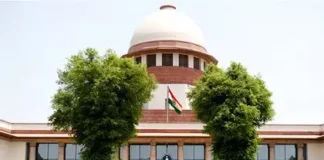West Bengal’s “Aprajita” Anti-Rape Bill, proposing stringent measures including death penalty for rapists, passes state assembly. Legal experts raise constitutional concerns.
Introduction
In a landmark move, the West Bengal Legislative Assembly has unanimously passed the Aparajita Woman and Child (West Bengal Criminal Laws Amendment) Bill, 2024, colloquially known as the “Aprajita” Bill. The legislation, introduced in response to the brutal rape and murder of a junior doctor at Kolkata’s R.G. Kar Medical College and Hospital in August 2024, aims to overhaul the state’s approach to sexual violence.
Key Provisions of the Aprajita Bill
The bill introduces several significant changes to existing laws:
- Mandatory Death Penalty: For cases where rape results in the victim’s death or leaves her in a vegetative state, the bill mandates the death penalty. Legal experts, however, argue that this provision may be unconstitutional. Former Supreme Court judge Asok Kumar Ganguly pointed out that mandatory death sentences were struck down in the 1983 Mithu v. State of Punjab case, as they violate Articles 14 and 21 of the Indian Constitution .
- Time-Bound Investigations: The bill mandates the completion of rape investigations within 21 days, a significant reduction from the previous two-month deadline. It also proposes the establishment of 52 special courts dedicated to expediting sexual violence cases .
- Specialized Task Force: A district-level task force led by a deputy superintendent of police will be established to handle rape and other atrocities against women and children.
- Stricter Penalties for Repeat Offenders: The legislation proposes life imprisonment for repeat offenders, with the possibility of the death penalty if circumstances warrant it.
- Protection of Victims’ Identities: Provisions are included to protect the identities of victims, ensuring their privacy and dignity during the legal process.
- Accountability Measures: The bill introduces penalties for police and health officials who fail to act promptly or tamper with evidence, aiming to hold authorities accountable for any negligence in the judicial process .
Context and Background
The bill was introduced following widespread public outrage over the tragic incident at R.G. Kar Hospital. Chief Minister Mamata Banerjee hailed the legislation as “historic,” drawing comparisons to past social reforms like the abolition of child marriage and Sati .
However, the bill has sparked a national debate. While some view it as a necessary step to combat rising sexual violence, others, including legal experts, express concerns over its constitutionality and potential to set a dangerous precedent.
Comparison with Other States
West Bengal’s move aligns with similar legislative efforts in other states:
- Andhra Pradesh: The Disha Bill, introduced in 2019, mandates the death penalty for rape and gang rape cases where there is sufficient evidence. It also provides for expedited trials, with investigations completed in seven days and trials completed in 14 working days .
- Maharashtra: The Shakti Bill, passed in 2020, introduced the death penalty for rape, gang rape, and causing severe harm through acid use. It also increased the minimum punishment for acid attacks on women and sexual assault of children .
Despite these efforts, none of these bills have received presidential assent, raising questions about their future implementation.
Legal and Constitutional Concerns
The mandatory death penalty provision in the Aprajita Bill has drawn criticism from legal experts. Asok Kumar Ganguly emphasized that the judiciary, not the government, should determine sentences, and mandatory death sentences are discriminatory and violate constitutional rights .
Additionally, the bill’s potential conflict with existing laws and its impact on the judiciary’s independence remain points of contention.
Conclusion
The passage of the Aprajita Bill marks a significant development in West Bengal’s approach to combating sexual violence. While it reflects the state’s commitment to addressing this grave issue, the legal challenges it faces may determine its future trajectory.
Internal Links:
- The Legal Observer
- Most Popular
- News
- National News
- Worldwide News
- Debate
- Insight
- Quote-Unquote
- Videos
- Wall of Fame
- Legal Helpline
- Contact
- Disclaimer
- The Legal Observer
- @thelegalobserve
External Link:





